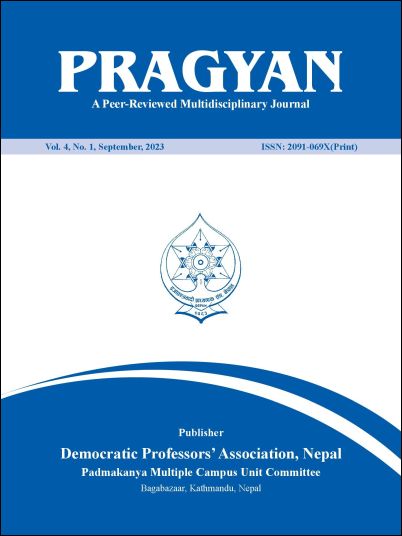Unraveling the Human Struggle: Eveline and Hamlet through Sartre's Existentialist Lens
DOI:
https://doi.org/10.3126/pprmj.v4i1.67620Keywords:
self-discovery, existential dilemmas, personal freedom, authenticity, literary explorationAbstract
This research article delves into the profound existential dilemmas encountered by Eveline in James Joyc’s “Eveline” and Prince Hamlet in Shakespeare’s Hamlet through the application of Jean-Paul Sartre’s existentialist framework. Eveline, the protagonist faces the haunting choice between her familiar life and a new and uncertain future with her lover, while Hamlet tackles with the moral complexities of seeking revenge for his father’s murder. By drawing upon Sartre’s concept of existential choice and the notion of authentic existence, this study aims to analyze the inner conflicts and quest for meaning experienced by these complex literary characters. Thus, this study digs into the intricate themes of personal freedom, responsibility, authenticity, and the quest for meaning. By unraveling the universal human struggle depicted in these characters’ decisions, this article offers an evocative exploration of self discovery and the profound impact of existential choices on the path to an authentic existence. Through a comparative analysis, this article examines the ways in which Eveline and Hamlet struggle with their existential dilemmas and navigate the intricate web of personal freedom and responsibility.




